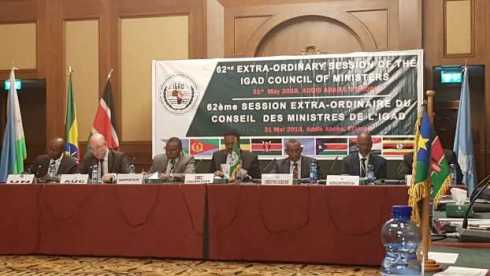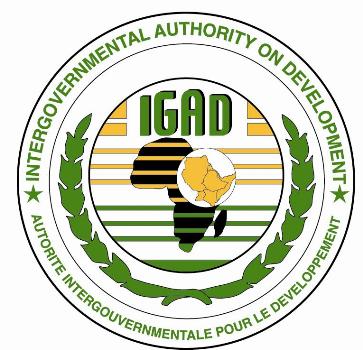
The leaders of Ethiopia and South Sudan have agreed that the peace process mediated by the regional body, Inter-Governmental Authority on Development (IGAD), offers a viable chance to end the conflict in Africa’s youngest nation.
During a meeting held in Ethiopia’s capital Addis Ababa, Abiy Ahmed and President Salva Kiir discussed regional peace and stability.
Ethiopia’s prime minister is the chair of the regional body which is pursuing an agreement between South Sudan’s government and rebel groups.
Last week, the second phase of the High-Level Revitalisation Forum, a stage of the peace process, ended without an agreement in Addis Ababa.
In a statement, IGAD said the talks ended after “several attempts to narrow the gaps between the positions of the parties” proved fruitless.
‘Punish saboteurs of peace’
Calls for IGAD to hold saboteurs of the peace process accountable have intensified, following repeated failure to agree during peace talks in addition to violations of ceasefires by both sides of the conflict.
The United States this week proposed that the United Nations Security Council impose sanctions against several South Sudanese ministers and officials, accusing them of obstructing peace efforts and blocking humanitarian assistance to civilians.
The measures would freeze the assets and ban travel for officials, including defence minister Kuol Manyang Juuk, former army chief Paul Malong, information minister Michael Lueth, and deputy chief of defence for logistics in the South Sudan Army Malek Reuben Riak Rengu.
It also targets Koang Rambang, governor of Bieh State, who the United States accused of leading military attacks and obstructing aid to civilians; and cabinet affairs minister Martin Elia Lomuro.
The 62nd Extra-Ordinary Session of the Intergovernmental Authority on Development (IGAD) Council of Ministers commenced in Addis Ababa today.
In his opening remark, Ethiopian Minister for Foreign Affairs and current chair of IGAD Council of Ministers, Dr Workneh Gebeyehu, called on all South Sudanese parties to write a new chapter by lifting their country out of crisis and accepting the draft document proposed by IGAD.




